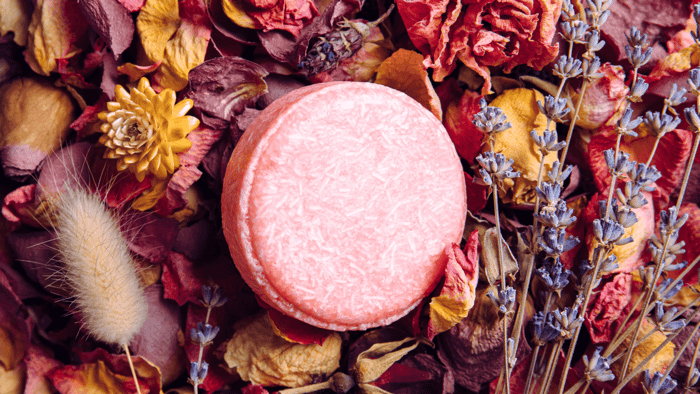Rosemary oil is a popular ingredient in many hair care products, and for good reason. Widely recognized as a flavorful addition to culinary creations, rosemary is also thought to possess numerous health and beauty advantages.
TikTok and Instagram have certainly fueled its popularity, but let’s take a closer look at what exactly rosemary oil is and how you can incorporate it into your haircare routine.

What is Rosemary Oil?
Rosemary oil is an essential oil extracted from the leaves of the rosemary plant (Rosmarinus officinalis). The plant is native to the Mediterranean region and has been used for centuries for its medicinal and aromatic properties.
Rosemary oil has a distinctive, herbaceous scent and is often used in fragrance, skincare, and haircare products for its antioxidant, anti-inflammatory, and antimicrobial properties.
Rosemary Oil Hair Benefits
Promotes hair growth: One of the primary benefits of rosemary oil for hair is its ability to promote hair growth. This is due to its high concentration of antioxidants, which help to stimulate the scalp and encourage hair growth.The oil also contains compounds such as carnosic acid and carnosol, which have been shown to enhance blood circulation in the scalp, further aiding in hair growth.
Prevents dandruff: Dandruff is a common problem for many people, and the antifungal properties of rosemary oil make it an effective treatment for dandruff, as it helps to eliminate the fungus that can cause flaking and itching.
Reduces hair loss: Rosemary oil contains compounds that have been shown to enhance hair strength, making it less likely to fall out. Additionally, its ability to stimulate the scalp and promote hair growth can help to reduce the appearance of hair loss.
Moisturizes the scalp: A dry scalp can lead to hair loss and breakage. Rosemary oil can help to hydrate the scalp, keeping it healthy and moisturized, which in turn can help to prevent hair loss and breakage.
Adds shine: Rosemary oil can also add a nice shine to your hair. The oil is known for its capability to smooth the hair cuticle, resulting in hair that looks polished and luminous, giving it a healthy appearance.
Promotes hair growth: One of the primary benefits of rosemary oil for hair is its ability to promote hair growth. This is due to its high concentration of antioxidants, which help to stimulate the scalp and encourage hair growth.

Incorporate Rosemary Oil into Your Haircare Routine
- Scalp massage: Mix a few drops of rosemary oil with a carrier oil, such as coconut or jojoba oil, and massage into your scalp. This will help to stimulate hair growth and improve circulation.
- Hot oil treatment: Mix rosemary oil with a carrier oil and heat it up. Apply the warm mixture to your hair, wrap your head in a towel, and let it sit for 30 minutes to an hour. Rinse with shampoo and conditioner.
- Shampoo and conditioner: Add a few drops of rosemary oil to your shampoo and conditioner before use. This will help to strengthen and nourish your hair, as well as provide a pleasant scent.
- Leave-in conditioner: Mix rosemary oil with a leave-in conditioner and apply it to your hair, focusing on the ends. This will help to hydrate and protect your hair from damage.
- Pre-styling: Add a few drops of rosemary oil to your styling products, such as mousse or gel, before use. This will help to add shine and hold to your hair while also nourishing it.

Rosemary oil is a powerful oil that can have a big impact on the health and appearance of your hair. Whether you are looking to promote hair growth, prevent dandruff, moisturize your scalp, reduce hair loss, or add shine, rosemary oil is a great option to consider. Try incorporating it into your hair care routine today and see the results for yourself!
It is important to keep in mind that rosemary oil can be quite potent, so it is best to start with a small amount and adjust as needed. Also, always do a patch test on a small area of your skin to make sure you do not have an adverse reaction before using it on your hair.
If you are noticing excessive hair loss, it’s always best to connect with a hair loss specialist.
This article is meant to be informational and should not be treated as medical advice. You should always consult with your physician for any personal concerns or when feeling ill and before starting any new supplements.
Want to know everything going on in natural health and beauty? Sign up for BVU's newsletter. You can also follow along on Instagram and Facebook.




